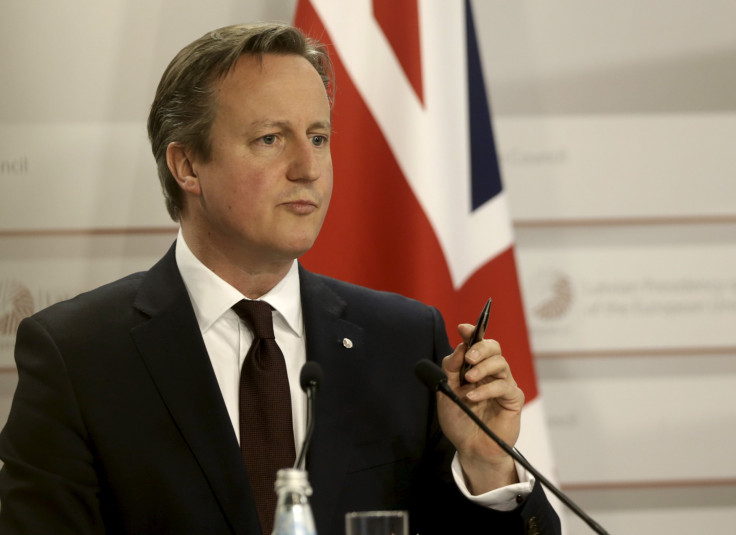UK To Allow Citizens From Commonwealth, But Not Other EU Nations, To Vote In Referendum

The U.K. government said on Sunday that it would allow British, Irish and Commonwealth citizens who are U.K. residents and over 18 years of age to vote in the referendum to determine if Britain remains a member of the European Union. However, nationals of other EU nations who reside in the country will not be eligible to vote.
The Conservative Party, which swept to victory earlier this month, and its leader Prime Minister David Cameron, have pledged to hold a referendum that could see Britain leave the EU by the end of 2017. The new rules would allow citizens of other Commonwealth countries, including Australia, Canada and several African nations to vote, but not other EU citizens living in the U.K. The government will introduce the voting eligibility rules as part of the EU Referendum Bill, the Wall Street Journal reported.
"No Brit under the age of 58 has had their say on the UK's membership of the European Union,” an unnamed government official said, according to BBC. "It is time to put this right and to give people the choice - in or out."
The bill, which is set to be introduced to parliament on Thursday, will seek to provide the same voting rules for the referendum as for a general British election.
"This is a big decision for our country, one that is about the future of the United Kingdom. That's why we think it's important that it is British, Irish and Commonwealth citizens that are the ones who get to decide," the official added.
British euroskeptics had previously warned that if the referendum was held under local government election rules, which allow residents from other member states to vote, up to 1.5 million people from other EU countries would have been eligible to voice their preference, BBC reported.
Chief Minister of Gibraltar Fabian Picardo praised the decision, saying Cameron had “been true to his word,” according to the BBC. "Our voice will be heard as part of the franchise for this seminal exercise in democracy," he said.
Cameron will hold a whirlwind set of meetings this week, including talks with Danish Prime Minister Helle Thorning-Schmidt, Dutch Prime Minister Mark Rutte, French President François Hollande, Polish Prime Minister Eva Kopacz and German Chancellor Angela Merkel over Thursday and Friday, according to the Journal.
Since his re-election, Cameron has also met with leaders from Sweden, Poland and Hungary, as well as the head of the European Council Donald Tusk, and the president of the European Commission, Jean-Claude Juncker.
A YouGov poll from February found that 45 percent of voters would prefer the U.K. to stay in the EU, while 35 percent would choose to leave it. Meanwhile, major financial institutions, including the Bank of England, have started preparing for the financial implications of the so-called “Brexit.”
© Copyright IBTimes 2025. All rights reserved.




















